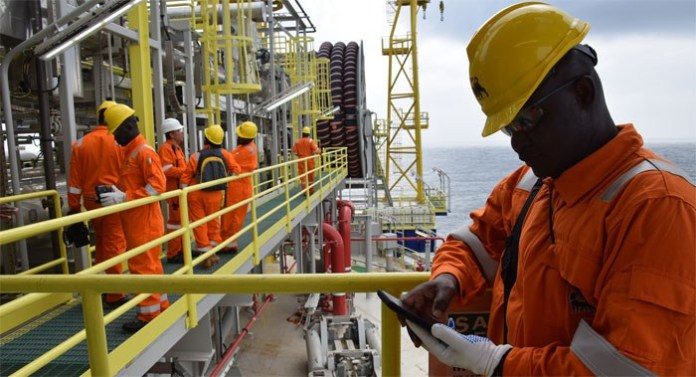|
Getting your Trinity Audio player ready...
|
Eni Ghana and the World Bank signed yesterday a Memorandum of Understanding (MoU) to develop initiatives to promote access to improved domestic wood fuel cook stoves, resulting in reduced exposure to unhealthy wood-smoke and decreased pressure on the depletion of forest resources.
The initiatives will contribute to the Government of Ghana’s strategy for ensuring universal access to modern, clean and safe energy sources by 2030, through the adoption of a pioneering cooperation model between a multilateral organization and the private sector.
Under the MoU Eni Ghana, with its partners in the OCTP project Vitol Upstream Ghana and the Ghana National Petroleum Corporation, will collaborate with the World Bank in a pilot project to be developed in 10 coastal communities in the Western Region – namely Sanzule, Krisan, Eikwe, Bakanta, Atuabo, Asemda, Ngalekyi, Ngalekpole, Baku and Anokye in the Ellembelle district – for a total population estimated at about 13,000 individuals. The pilot project will assess the most suitable technology and design for domestic wood fuel cook stoves, as well as the related business model ensuring their production and/or distribution in rural areas. Based on these findings, a 2-year scheme aiming to ensure availability of improved domestic wood fuel cook stoves will be developed, endorsed by local stakeholders and implemented.
Eni Ghana’s Managing Director Roberto Daniele commented, “This MoU will enable Eni Ghana, the World Bank and the coastal communities in the Western Region to benefit from each other’s experiences, resources and added value to find effective, sustainable long-term solutions to concrete environmental and social issues. Also, this fits in Eni’s strategy to leverage international best practices through strategic partnerships with national and international organizations, institutions and agencies.”
World Bank Country Director Pierre Laporte stated, “Universal access to clean and modern cooking solutions in Ghana is an integral element of ensuring that the broader aims of SDG 7 — “Universal Access to Modern Energy Services for All” — are achieved by 2030. Thankfully, the critical challenge of closing the gap of access to clean cooking solutions for unreached populations is now taking center stage. This involves the Government of Ghana, members of the Development Community, Civil Society and Private Sector Actors towards agenda 2030. Though ambitious, we believe that there is room to make significant progress – through stronger partnerships – that can create scalable opportunities to improve millions of lives. The World Bank is supporting the development of the National Clean Cooking Strategy to serve as a roadmap and a catalyst for a thriving clean cooking sector in Ghana. This partnership will serve as a pilot towards the support from the World Bank to the Government of Ghana”.
Source: Daily Mail GH





